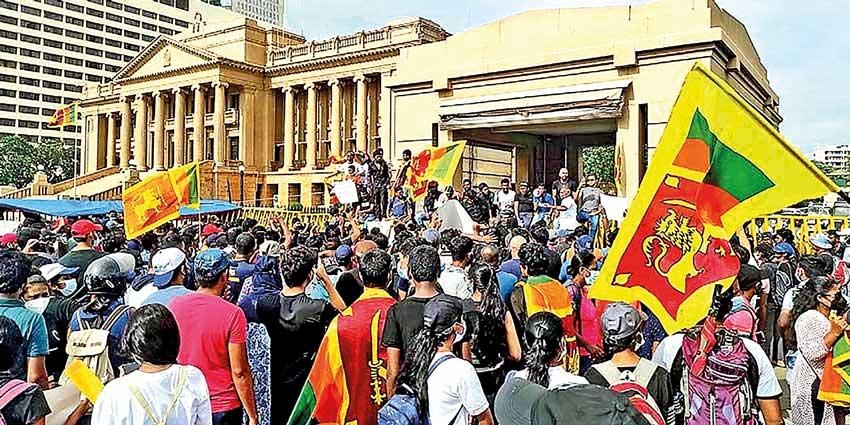Recipes for co-opting and subverting #peoplepower

Ram Manikkalingam, Visiting Professor of Political Science at the University of Amsterdam has sketched ‘An Agenda for Change’ (Sunday Times, July 3, 2022). Now change is an easy and cheap term. For some, it is about regime change. For some, it is about ousting the Rajapaksa family. Some talk of system change which of course implies at some level constitutional reform. Ram belongs to the last category.
We must note that systems are not only about politics but about political economy. If you want an economic system or a model of development kept intact but want some alteration in the political rooms, some may argue it is cosmetic or a small and all things considered meaningless consolation prize that’s sought. Ram is not talking about the large prize(s), but a generous reading would be that he believes the political reforms (in the form of constitutional changes) is a necessary precondition for taking on the more endearing and pernicious ills in the political-economic terrain. In this limited and limiting sense, Ram pushes a tired button: ‘Sri Lanka’s travails are directly linked to the political hold one family has had over the country.’
I believe that any professor of political science with any understanding of post-independence politics in Sri Lanka would be hard-pressed to conclude that Sri Lanka’s travails were birthed and nurtured by the Rajapaksa family and the Rajapaksa family alone. There’s ample academic literature to prove otherwise. To put it mildly, the Rajapaksas, even if one were to date it all back to 2005 and ignore what happened from 2015 to 2019, were but one set of custodians over a flawed, short-sighted and in the final instance servile paradigm of development. Toss in the forex crisis, balance of trade crisis, food and energy security/sovereignty crisis etc., and there’ll be many more families and individuals crying out for naming and shaming. To reduce it all to the Rajapaksas and at the present moment to Gotabaya Rajapaksa is easy. And silly.
But let’s play with Ram’s thesis. He poses three obstacles to political and economic reform: a) protesters’ antipathy to engagement with parliamentarians, b) Gotabaya not resigning, and c) international financial institutions, in particular the IMF, being reluctant to move due to ‘b’. This articulation betrays Ram’s prejudices and largely misplaced faith in the IMF, but let’s put all that aside. Ram claims: ‘The challenge in the coming period will be to combine political pressure from the protesters, institutional pressure from parliament and financial pressure from IFIs to enact political reform.’ Political reform, then, according to Ram, is about getting Gotabaya to resign and then amend the constitution.
